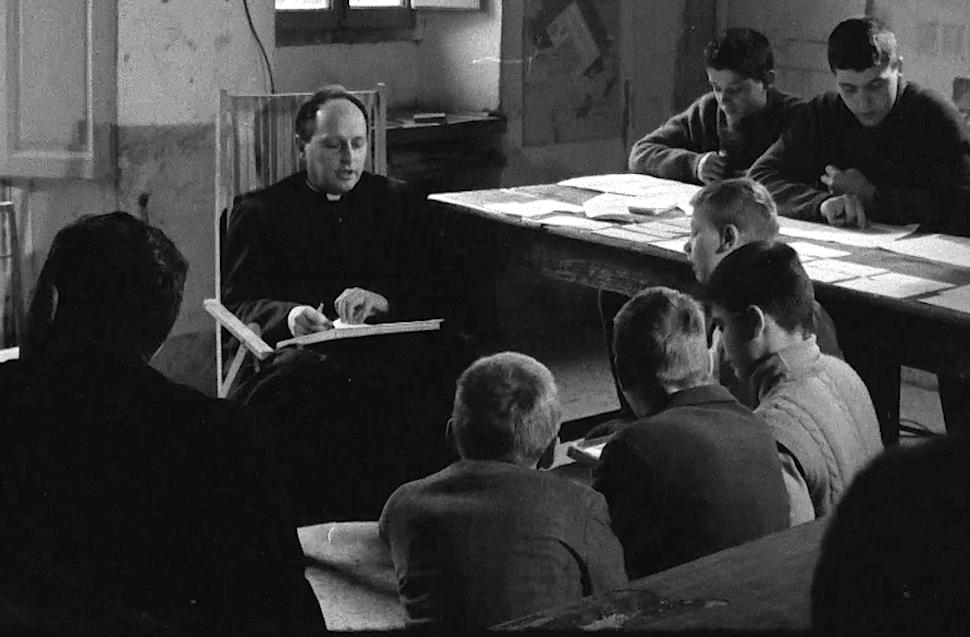Barbiana, December 1965. The director Angelo D’Alessandro had gone to Mugello to interview Don Milani for a documentary he was making about conscientious objection. The meeting with Lorenzo Milani and the children of the school of Barbiana would lead him to change his intentions. Angelo D’Alessandro put together a unique account in which the priest himself played a part, narrating, talking, explaining. Barbiana ’65 la lezione di don Milani stems from the recovery of the material assembled by D’Alessandro, the only person Don Milani ever allowed to film daily life in his school: the collective writing, the reading of newspapers, the older pupils teaching the younger ones. The present-day comments of Adele Corradi, Beniamino Deidda and Don Luigi Ciotti on education, the Constitution and the Gospels, the three fundamental pillars of Milani’s thinking, complement a story that reaches its peak in the sequence in which Don Lorenzo sits in front of the typewriter and reads his “Letter to the Judges,” written to defend himself against the charge of advocating criminal acts in the trial that awaited him in Rome.


